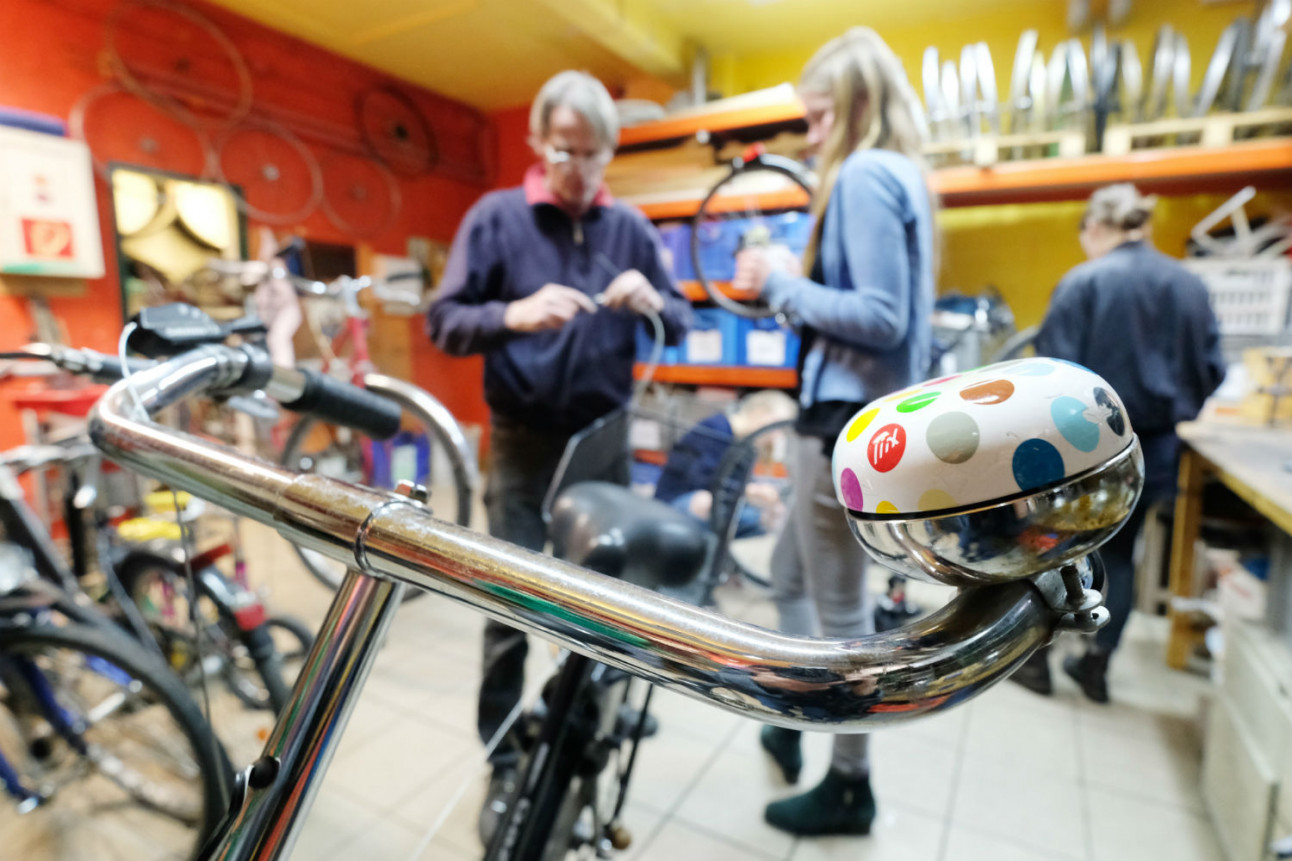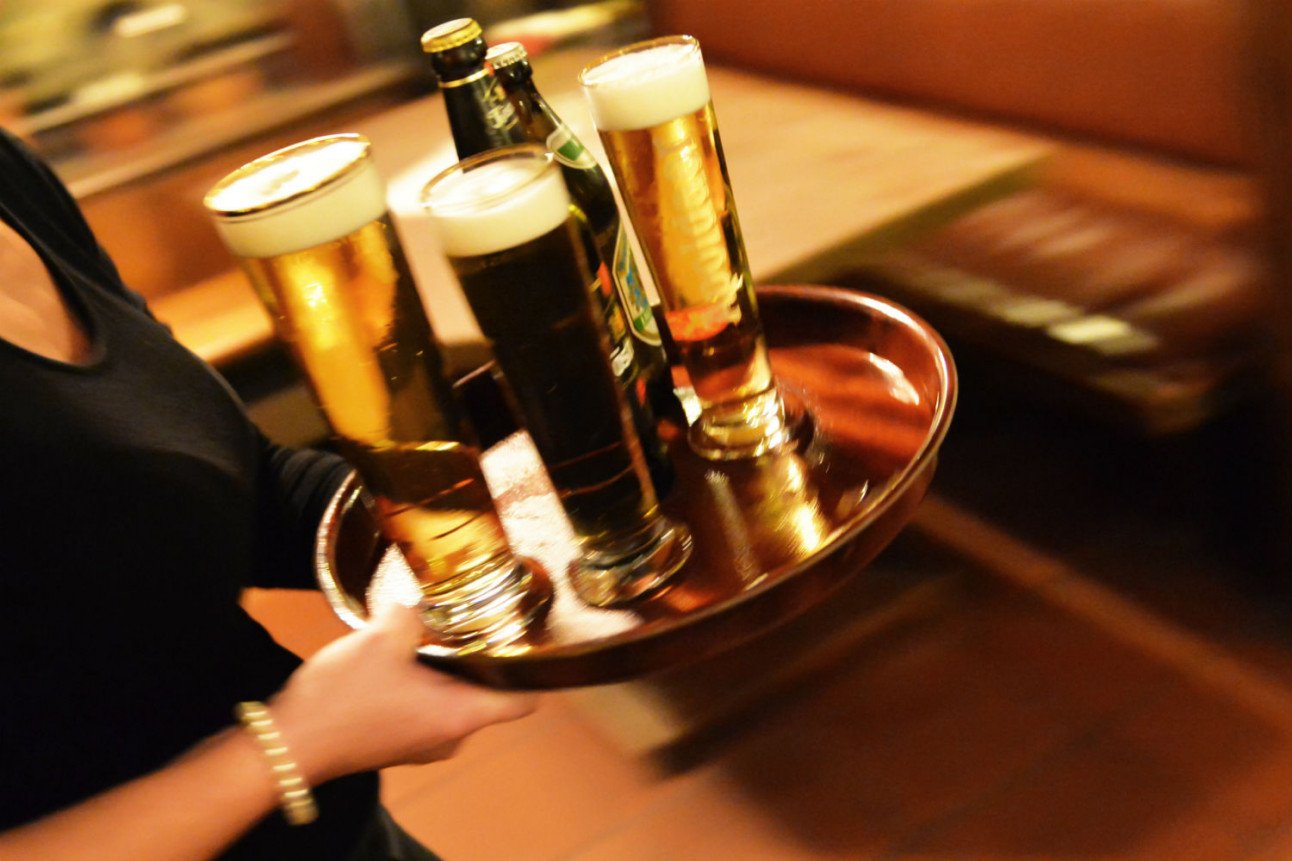Austria: Eight of the funniest mistakes people learning German make

The German language is filled with false friends and words that sound dangerously close to something else with a completely different meaning. Sarah Magill discusses some of the most common mistakes non-native speakers make.
Let’s face it, German is not an easy language to master.
Most of us who have made Austria our home and managed to get to grips with the language have unwittingly made fools of ourselves along the way by making ridiculous-sounding errors to native speakers.
Here are some of the best mistakes I have heard, been told of - and made myself.
Ich will, ich werde
Another common pitfall for native English speakers, is using the word will instead of werde thanks to the falscher Freund (false friend) that is will.
READ ALSO: The 10 false friends English and German speakers keep muddling up
In German, ich will means "I want", whereas ich werde means "I am going to". This mix up can lead to a lot of confusion, especially when it comes to making plans.
The only tip I can give is to try to think of the word will in German meaning “I have the will”
Leistungswasser or Leitungswasser?
Asking for tap water can be a bit awkward at the best of times, so it doesn’t help if you throw a confusing mispronunciation into the mix.
The German word for tap water is Leitungswasser meaning water from the Leitung (pipeline). If you insert an “s” into the word, you are creating a brand-new German word, which translates into English as “performance water.”
It may not be correct but it could certainly be a great name for an energy drink, right?

Trying to speak German can be thirsty work. Photo: DPA
Ich bin heiß
For native English speakers, this is a mistake which comes naturally, as it is a literal translation of how we would say “I am hot.”
If you say this to a German, however, you may find the conversation taking a risqué turn, as you will have in fact told them that you’re horny.
heiß is however, one of the adjectives which are used with the dative mir (others examples are “kalt - "cold", langweilig - "boring", peinlich - "embarrassing").
So make sure you say mir ist heiß instead.
Versorgt or besorgt?
This is a tricky one which I have seen trip up many competent German language-speakers, much to the hilarity of the natives.
The problem is, that in the infinitive, the verbs versorgen and besorgen have very similar meanings: besorgen is to obtain, or to provide, versorgen is to provide for, to tend to.
But the past participle is a different story, if you want to say “I am well taken care of/I have everything I need” the correct word is versorgt. If you choose besorgt then you are saying “I am worried”.
An example of how this mistake typically arises in an exchange like this:
“Hast du alles, was du brauchst?“
Do you have everything you need?
"Ja, ich bin besorgt, danke.“
Yes, I’m worried, thank you.

Don't ask for financial advice in a bike shop. Photo: DPA
Pleiter Reifen?
If you turn up to your local bicycle repair shop and declare “meiner Reifen ist pleiter”, as a friend of mine once did, expect confusion. What you will be telling them is that your wheel is bankrupt.
What you need to say is “ich habe einen platten Reifen” – using the word platt meaning “flat”, as most bike shops won’t be able to help you with matters of financial insolvency.
schwül oder schwul
Watch out for this one. A failure to pronounce your ü umlaut correctly will have you calling weather homosexual (schwul) when you want to say it’s humid (schwül).
READ ALSO: Funniest mistakes that Germans make in English
Entspannt or gespannt
This is another case where two German words with the same Stamm (stem) alter the meaning of the word significantly.
A common phrase in German is “ich bin gespannt“, which is a way of saying “I’m curious” or “I’m looking forward to it”. This is a common and polite way to round off a conversation about a planned date or announcement.
However, if you say instead “Ich bin entspannt” (relaxed) it may sound like you’re not that interested.

Mixing up trays and tablets can become a problem. Photo: DPA
Tabletten, Tabletts
Another friend of mine, whilst working as a waiter, once loudly asked a colleague in a packed restaurant:
“Wo sind die Tabletten?”
The German-speaking customers must have thought that he was suffering from a bad headache.
What he meant however, was to ask where the trays were. These words are almost identical – a tablet or pill in German is die Tablette and the plural is die Tabletten. A tray, on the other hand, is das Tablet (plural die Tablets). Oops.
Comments
See Also
Let’s face it, German is not an easy language to master.
Most of us who have made Austria our home and managed to get to grips with the language have unwittingly made fools of ourselves along the way by making ridiculous-sounding errors to native speakers.
Here are some of the best mistakes I have heard, been told of - and made myself.
Ich will, ich werde
Another common pitfall for native English speakers, is using the word will instead of werde thanks to the falscher Freund (false friend) that is will.
READ ALSO: The 10 false friends English and German speakers keep muddling up
In German, ich will means "I want", whereas ich werde means "I am going to". This mix up can lead to a lot of confusion, especially when it comes to making plans.
The only tip I can give is to try to think of the word will in German meaning “I have the will”
Leistungswasser or Leitungswasser?
Asking for tap water can be a bit awkward at the best of times, so it doesn’t help if you throw a confusing mispronunciation into the mix.
The German word for tap water is Leitungswasser meaning water from the Leitung (pipeline). If you insert an “s” into the word, you are creating a brand-new German word, which translates into English as “performance water.”
It may not be correct but it could certainly be a great name for an energy drink, right?

Trying to speak German can be thirsty work. Photo: DPA
Ich bin heiß
For native English speakers, this is a mistake which comes naturally, as it is a literal translation of how we would say “I am hot.”
If you say this to a German, however, you may find the conversation taking a risqué turn, as you will have in fact told them that you’re horny.
heiß is however, one of the adjectives which are used with the dative mir (others examples are “kalt - "cold", langweilig - "boring", peinlich - "embarrassing").
So make sure you say mir ist heiß instead.
Versorgt or besorgt?
This is a tricky one which I have seen trip up many competent German language-speakers, much to the hilarity of the natives.
The problem is, that in the infinitive, the verbs versorgen and besorgen have very similar meanings: besorgen is to obtain, or to provide, versorgen is to provide for, to tend to.
But the past participle is a different story, if you want to say “I am well taken care of/I have everything I need” the correct word is versorgt. If you choose besorgt then you are saying “I am worried”.
An example of how this mistake typically arises in an exchange like this:
“Hast du alles, was du brauchst?“
Do you have everything you need?
"Ja, ich bin besorgt, danke.“
Yes, I’m worried, thank you.

Don't ask for financial advice in a bike shop. Photo: DPA
Pleiter Reifen?
If you turn up to your local bicycle repair shop and declare “meiner Reifen ist pleiter”, as a friend of mine once did, expect confusion. What you will be telling them is that your wheel is bankrupt.
What you need to say is “ich habe einen platten Reifen” – using the word platt meaning “flat”, as most bike shops won’t be able to help you with matters of financial insolvency.
schwül oder schwul
Watch out for this one. A failure to pronounce your ü umlaut correctly will have you calling weather homosexual (schwul) when you want to say it’s humid (schwül).
READ ALSO: Funniest mistakes that Germans make in English
Entspannt or gespannt
This is another case where two German words with the same Stamm (stem) alter the meaning of the word significantly.
A common phrase in German is “ich bin gespannt“, which is a way of saying “I’m curious” or “I’m looking forward to it”. This is a common and polite way to round off a conversation about a planned date or announcement.
However, if you say instead “Ich bin entspannt” (relaxed) it may sound like you’re not that interested.

Mixing up trays and tablets can become a problem. Photo: DPA
Tabletten, Tabletts
Another friend of mine, whilst working as a waiter, once loudly asked a colleague in a packed restaurant:
“Wo sind die Tabletten?”
The German-speaking customers must have thought that he was suffering from a bad headache.
What he meant however, was to ask where the trays were. These words are almost identical – a tablet or pill in German is die Tablette and the plural is die Tabletten. A tray, on the other hand, is das Tablet (plural die Tablets). Oops.
Join the conversation in our comments section below. Share your own views and experience and if you have a question or suggestion for our journalists then email us at [email protected].
Please keep comments civil, constructive and on topic – and make sure to read our terms of use before getting involved.
Please log in here to leave a comment.